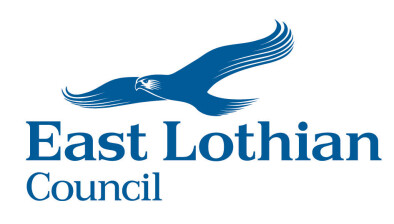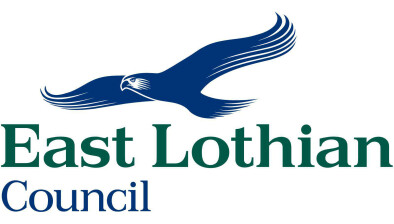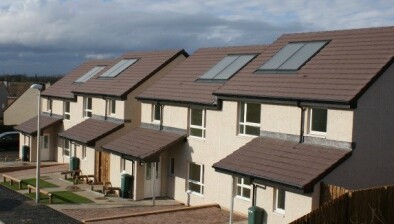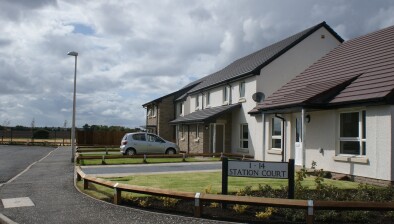East Lothian rents to increase by 6.5% as budget agreed
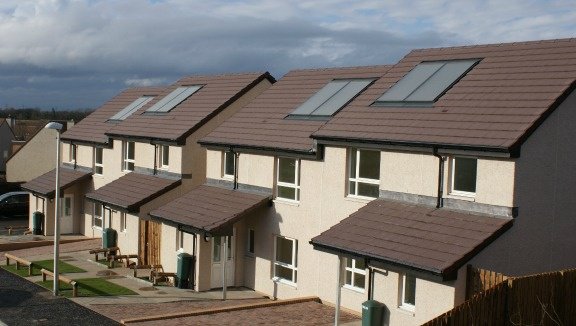
Rents for East Lothian Council tenants will increase by 6.5% from April, an average of £5.25 per week, after elected members approved the local authority’s budget for 2025/26.
The budget, which was considered at this week’s full council meeting, has been developed in the context of significant ongoing demand and cost pressures arising from East Lothian’s growing population, alongside wider economic challenges.
A rent level consultation with council tenants had been carried out at the end of 2024, which proposed an increase of seven per cent. Just over half of tenants agreed with the need to increase rent, with 75% of those who responded agreeing that the rent they paid was good value for money, but 63% disagreed with a 7% increase.
At the meeting, Council agreed to increase rents for 2025/6 by 6.5% with an extra £1 million in investment in all of the next five years to fund modernisation work for existing council homes. Councillors also heard that there are plans to deliver 774 new affordable homes by 2029/30 (cumulative since 2022/23).
On average, while a new-build house will bring in under £5,000 in rent each year, the cost of building a new council house has increased significantly in recent years and is now in excess of £200,000. Without additional government funding or a review of the rent strategy this approach will become unsustainable over the medium term. In the context of elevated interest rates and increased costs to deliver new build affordable housing, alongside lack of certainty in government funding, Council agreed to review the longer-term strategy for the HRA, encompassing the business plan and future rent levels as well as a review of oversight and scrutiny arrangements for housing policy, performance and strategic planning. Plans are already underway to achieve a rent restructure in 2025/6.
Councillor Andy Forrest, cabinet spokesperson for Housing and Property Maintenance, said: “Despite being one of the fastest growing local authority areas in Scotland, East Lothian’s council house rent levels are among some of the lowest. We know from consultation that the majority of tenants believe that their rent is good value for money and that they want us to use that rent to keep investing in modernisation work and bringing more new properties into council housing stock to ease pressure on our housing list.
“This 6.5 per cent increase means an average weekly increase of £5.25 in what our tenants pay. My thanks to everyone who took part in the rent level consultation. I hope it is clear that this increase is absolutely necessary to maintain current levels of service to our tenants and to make improvements in our modernisation and new build programmes.”
Councillor Forrest added: “I also welcome the review of oversight and scrutiny arrangements for housing policy, performance and strategic planning, as this will ensure that we can continue to deliver on our priorities.”
Council also approved a Housing Revenue Account expenditure budget for 2025/26 of £40.958m, an increase of around £2.8m on last year, which will be spent on service costs including repairs and staffing. The Capital budget of £43.820m will be invested in new council housing, modernisation, extensions and energy efficiency improvements to existing council properties.
The cross-party budget proposals that members considered are available to read online. They highlight that changing demographics, growing demand for statutory services and increasing national policy expectations mean that the gap between available funding and expenditure requirements continues to grow, set alongside other pressures facing the whole of the public sector. Despite these significant challenges, the agreed budget enables the council to continue investing in significant priority areas such as adult social care, children’s services and education.
A 10% council tax increase for 2025/26 was agreed. This follows a freeze in the current financial year. For people living in a Band D property, this represents a £2.76 weekly increase – or an additional £11.96 per month.
Councillors also agreed:
- a commitment to invest over £211 million in infrastructure over the next five years including education estate
- an increase of £7.5m to the Integrated Joint Board (IJB), which is responsible for the planning and delivery of adult health and social care services
- an additional £1m for council home modernisation
- increase in roads and property renewal budgets of £1m each
- planned savings of £8.9m over the next five years with a commitment to identify further measures to close the budget gap over the medium term.
The council will also continue investing in local infrastructure and schools through its capital programme, whilst helping to support and protect the local environment.
The uplift of £1m to the roads budget in 2025-26 brings overall investment in roads over the next five years to £22.7m.
The capital budget also includes significant investment in the education estate including improvements to security, increasing ASN provision space and the completion of three new primary schools which are due to open in 2025.
East Lothian Council leader Councillor Norman Hampshire said: “Our financial situation means it has been necessary to set a council tax increase of 10%. East Lothian’s growth continues to put pressure on all parts of the council. It is vital that we can sustain essential services to protect our most vulnerable residents and invest in education to give all children the best start in life.
“Even in this most difficult of financial circumstances, we have worked hard to deliver a cross-party budget which is what the people of East Lothian would expect of their elected representatives.”
Leader of the Opposition Councillor Lyn Jardine said: “With the ongoing financial challenges the council is facing, we must continue to focus on directing our resources where they are most needed. It’s essential we do everything we can to tackle poverty and inequality. Local politicians are at the sharp end of decisions that impact directly and it’s extremely difficult to meet increased expectations with reduced resources. We are therefore committed to working in a collaborative way across parties, with our communities and groups and to have difficult conversations and develop a shared purpose and vision in all that we do.”




